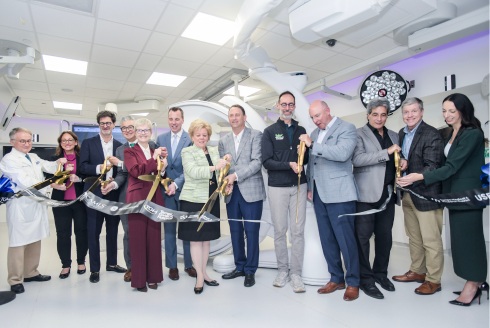
Universal Music Group (UMG) has announced a significant move towards integrating artificial intelligence into music production, raising questions about the future role of human artists and creators. In a recent partnership, UMG aims to accelerate its AI music patents, indicating a shift in focus from traditional songwriting and production methods to utilizing AI technologies. This development suggests that the music industry may be ready to replace seasoned artists, songwriters, and producers with AI capabilities to enhance efficiency and reduce costs.
The new partnership has sparked discussion among industry insiders, particularly regarding the implications for human talent. Bobby Owsinski, a well-known producer and author, expressed concerns over UMG’s direction. He noted that it is perplexing for a company built on decades of human creativity to prioritize AI-driven solutions over established artists. The announcement coincides with Hallwood Media’s recent deal with Imoliver, identified as the leading AI music designer on the platform Suno. This term, “AI music designer,” represents a new classification for individuals who guide AI in music creation, suggesting a potential shift in career aspirations among future musicians.
While AI music platforms may require a certain level of skill to generate satisfactory results, Owsinski argues that they cannot replicate the years of dedication and expertise that musicians invest in their craft. He acknowledges that musicians trained in traditional methods can achieve better outcomes when working with AI, but he remains skeptical about the authenticity of music produced in this manner. The nuanced creativity that leads to hit songs, he asserts, cannot be mimicked by algorithms.
Despite the growing prominence of AI in the industry, Owsinski believes that AI-generated music lacks the emotional depth and innovative qualities that come from human experience. He points out that while AI can assist musicians by providing elements such as virtual drummers or vocalists for demos, it does not replace the unique insights that artists bring to their work.
The concern extends to the potential impact on employment within the music industry. Owsinski highlights that the adoption of AI music designers could diminish opportunities for talented songwriters, producers, and engineers. As UMG continues to explore AI technologies, it appears to be aligning itself with a corporate model that prioritizes profit over genuine musical artistry. This trend raises concerns about the future of creative professions in an industry increasingly focused on intellectual property management rather than nurturing new talent.
Public sentiment also plays a critical role in the acceptance of AI-generated content. Owsinski notes that audiences have shown a tendency to reject AI-produced works across various creative fields, including art and writing. While there may eventually be an AI-driven hit song, it is likely to be fleeting and not representative of enduring artistic value.
UMG’s investment in AI music patents reflects a broader corporate strategy to streamline operations and reduce the financial burden of compensating artists. As the music label shifts towards virtual artists and AI solutions, it may distance itself from the core values of the music business that prioritize genuine human expression. Owsinski encourages those in the music industry to remain hopeful, suggesting that a new wave of creators focused on authentic artistry will emerge, potentially surpassing companies that choose to prioritize AI over human talent.
As the landscape of music production evolves, the implications of AI integration will continue to unfold, shaping the future of how music is created, produced, and experienced.






